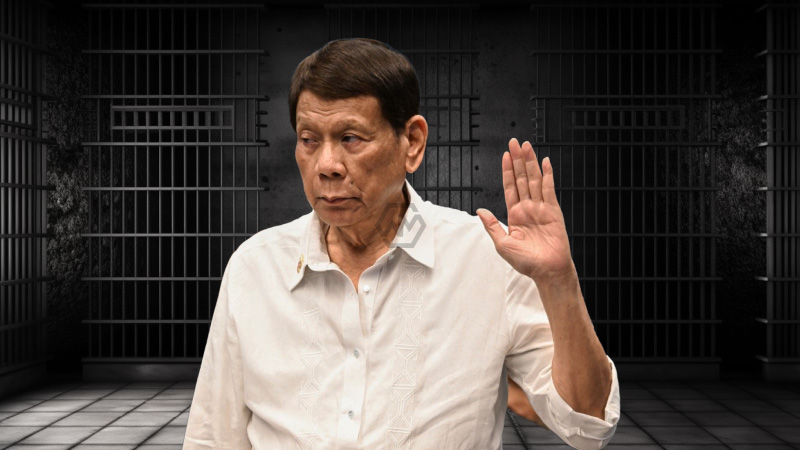- Former Philippine President Rodrigo Duterte arrested on an ICC warrant for alleged crimes against humanity.
- His “war on drugs” resulted in thousands of extrajudicial killings, according to human rights groups.
- The arrest raises questions about the Philippines’ legal stance and possible extradition to The Hague.
Duterte’s arrest marks a significant moment in international justice as the ICC pushes forward with its investigation into alleged crimes against humanity during his presidency.
The Marcos administration now faces the critical decision of whether to comply with the ICC and transfer Duterte to The Hague or to assert Philippine jurisdiction over his case.
Duterte Faces ICC Charges Over ‘War on Drugs’ Killings
The International Criminal Court’s warrant against Duterte is based on allegations that his government carried out a widespread and systematic crackdown on suspected drug users and dealers. Police reported 6,200 deaths from anti-drug operations, but human rights organizations estimate that the actual number may exceed 30,000, many of whom were victims of extrajudicial killings.
Despite the Philippines’ withdrawal from the ICC in 2019, the court maintains jurisdiction over crimes committed before the exit. Duterte and his allies have dismissed the arrest as unlawful, arguing that the ICC has no authority over a country that is no longer a member. However, his detention suggests a shift in the Philippines’ stance under President Marcos Jr., who has signaled cooperation with international bodies.
Public reaction to Duterte’s arrest has been polarized. Supporters view him as a leader who prioritized national security, while critics argue that his brutal tactics violated fundamental human rights. Victims’ families, particularly those who lost loved ones in the drug war, have hailed the arrest as a long-overdue step toward justice.
The next legal steps remain uncertain. While the ICC seeks Duterte’s extradition, Philippine authorities must decide whether to pursue domestic prosecution or hand him over to international courts. Either decision will have significant political and diplomatic consequences.
Duterte’s arrest signals a turning point in how international justice is enforced, particularly in cases involving former heads of state. The outcome of this case could shape the future of global accountability for human rights violations.
“At least he is given the chance to defend his side, unlike the victims of his war on drugs.” – Randy delos Santos, relative of a drug war victim.



